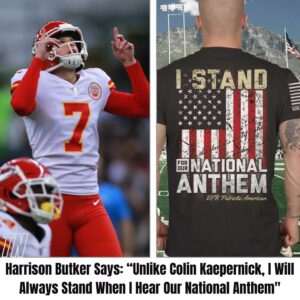In the realm of sports, athletes often become cultural icons, representing more than just their athletic prowess. Colin Kaepernick and Tim Tebow are two such figures, each embodying different ideals and values that have sparked widespread debate and divided public opinion. This essay explores the contrasting paths of Kaepernick and Tebow, their impact beyond sports, and the call for a shift in societal values that favor one over the other.
Colin Kaepernick, a former NFL quarterback, transitioned from a promising sports career to a polarizing political figure. His decision to kneel during the national anthem in 2016 as a protest against racial injustice and police brutality catapulted him into the national spotlight. Kaepernick’s actions were a catalyst for a broader conversation about systemic racism in America, igniting both support and backlash.
Kaepernick’s protest was a powerful statement, aligning with a long history of athletes using their platform to advocate for social change. However, it also led to significant personal and professional consequences. His career in the NFL effectively ended, and he became a symbol of resistance for some and disrespect for others. Despite the controversy, Kaepernick remained steadfast in his stance, becoming a prominent activist and public figure.
Tim Tebow, another former NFL quarterback, presents a stark contrast to Kaepernick. Known for his strong Christian faith and public displays of devotion, Tebow often knelt in prayer on the field, a gesture that became widely known as “Tebowing.” His career, while not as tumultuous or politically charged as Kaepernick’s, was marked by a similar level of public scrutiny and media attention.
Tebow’s commitment to his faith and his charitable endeavors, including his work with the Tim Tebow Foundation, have garnered admiration and respect. Unlike Kaepernick, Tebow’s public persona is more aligned with traditional American values, emphasizing faith, philanthropy, and a positive public image. His career trajectory has been more stable, with successful transitions into baseball, broadcasting, and continued philanthropic efforts.
The plea for more Tim Tebows and fewer Colin Kaepernicks reflects a desire for role models who embody certain values perceived as less divisive and more unifying. Tebow represents a form of leadership rooted in faith, community service, and a positive outlook, while Kaepernick’s legacy is intertwined with activism and a willingness to challenge societal norms and injustices.
Advocates for Tebow-style role models argue that sports figures should inspire through personal virtue and constructive actions rather than political statements. They see Tebow’s approach as fostering unity and promoting a positive societal impact without the divisiveness associated with political activism.
While the debate between the merits of Kaepernick and Tebow continues, it is essential to recognize the broader context in which these figures operate. Both have used their platforms to influence society, albeit in different ways. Kaepernick’s activism has brought crucial issues to the forefront, forcing uncomfortable but necessary conversations. Tebow’s faith-driven actions have provided a template for positive influence through personal example and community service.
Ultimately, the world of sports and society at large benefits from a diversity of role models. The call for more Tim Tebows does not necessarily mean a rejection of Kaepernick’s contributions but rather an acknowledgment of the need for balance. As society evolves, the most effective icons will likely be those who can combine the virtues of both, promoting positive change while fostering unity and understanding.
News
Mark Wahlberg demands the firing of teachers who remove American flags from classrooms, saying it’s a disrespect to freedom and sacrifice.
Recently, actor and entrepreneur Mark Wahlberg has sparked intense debate across the nation with his bold statement demanding the immediate firing of any teacher who removes the American flag from their classroom. Wahlberg’s declaration that “The American flag stands for…
The View has become TV’s top sleep aid! After a ratings plunge, it’s the worst show on American TV!
In the ever-evolving world of television, few shows have faced the kind of dramatic downfall recently experienced by The View. Once a prominent platform for political and cultural discussion, The View has been dubbed the “worst show on American TV”…
Kid Rock stirred controversy with a message aimed at Garth Brooks: “True country stars love the flag! You can’t sing country if you don’t stand by it. Country music is about heart, soul, and patriotism.”
Country music has long been associated with themes of patriotism, tradition, and a deep-seated love for the American flag. Recently, Kid Rock made headlines with a provocative statement seemingly aimed at fellow country star Garth Brooks: “If you don’t love…
Harrison Butker declares, ‘I’ll always stand for our national anthem,’ taking a swipe at protests. Respect versus drama—Butker stands tall!
In the contemporary landscape of professional sports, athletes are often thrust into the center of societal debates, their actions and words echoing far beyond the fields and courts. Harrison Butker, a placekicker for the Kansas City Chiefs, recently reignited the…
Breaking: Sheryl Swoopes Calls Caitlin Clark A “Bully” & Claims She Didn’t Really Break The NCAA Scoring Record In Hate-Filled Rant
WNBA legend Sheryl Swoopes took issue with the discourse every time Indiana Fever rookie Caitlin Clark is fouled and pointed to what happened Sunday with Chicago Sky forward Angel Reese. Reese clocked Clark on the head while Clark…
Rob Reiner’s latest film, which takes aim at Christians, bombed at the box office, falling flat on its face and leaving him red-faced.
Renowned filmmaker Rob Reiner has always been vocal about his political beliefs, often sharing his views on social media. However, it seems that his experiences during the former president’s administration have had a profound impact on him, leading some to…
End of content
No more pages to load






